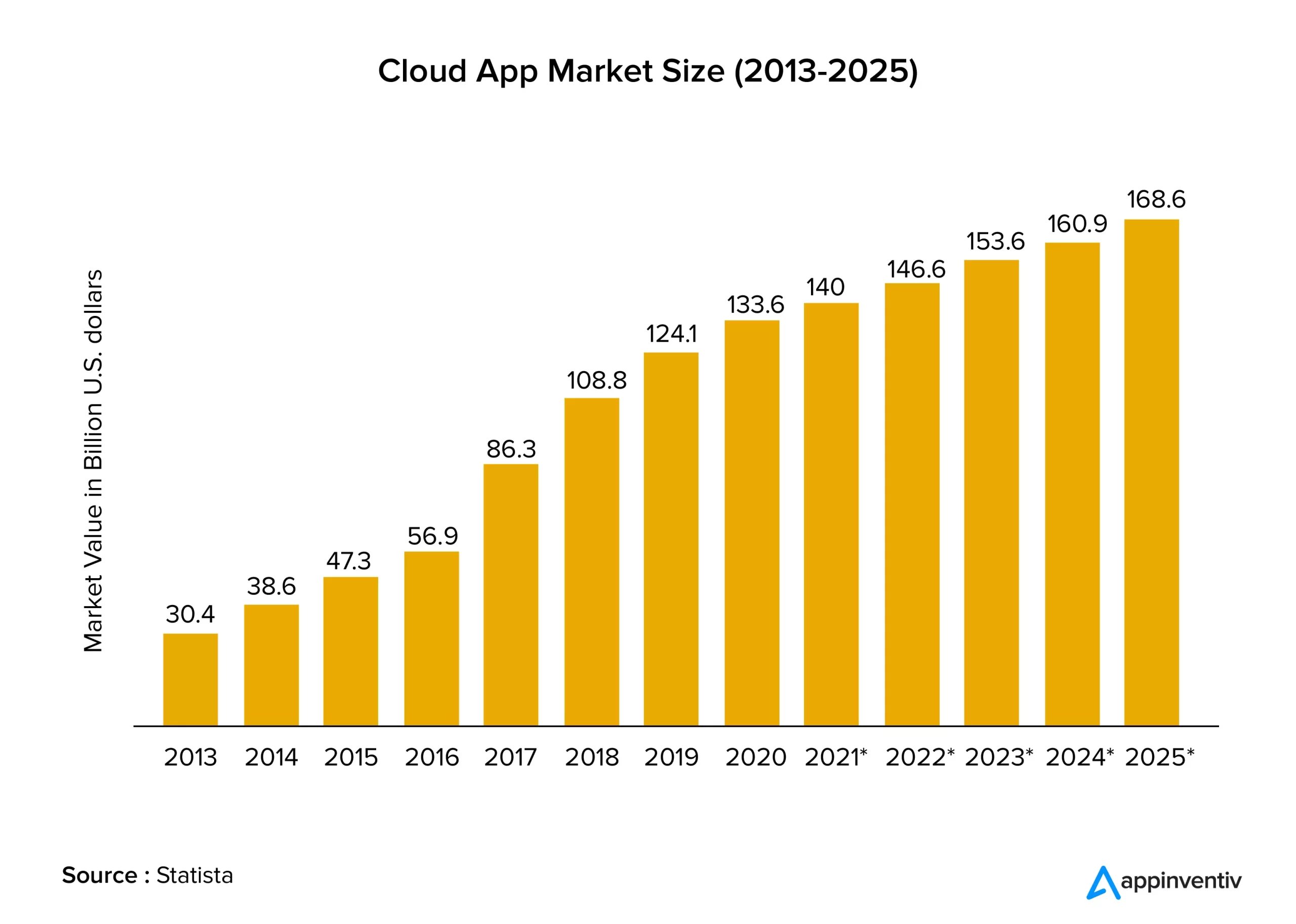Cloud computing is a rage in the present business landscape.
Several industrial reports mention that with the expansion of business mobile applications, storage capacity and performance are significant issues for over 70% of the digital workspaces. The best possible approach to deal with such challenges is Cloud computing. From streamlining everyday business processes to innovating products and services, tackle your biggest challenges.
What is a cloud-based application?
A cloud-based app is an internet run program with components that store and drive online with some or all processes executed on the cloud. To understand this in detail, take it this way, in cloud-based applications, a user interacts through a web or mobile browser. The data processing here takes place on the remote server bae and is managed with the help of an API. A user’s device serves only as an input device in the cloud app and does not interfere with the major process.
Benefits of using Cloud-based applications
1. Cost-saving
Cloud services only charge for necessary cloud space and feature sets required for your application development model. This pay-as-you-go system applies to every cloud deployment service that factors in lower cost and higher results.
2. Security
A cloud host’s full-time job is to monitor data security which is significantly more efficient than a conventional in house system. Cloud software development also makes it easier to comply with government security standards.
3. Flexibility
Developing cloud applications offers more flexibility overall against hosting on a local server. If you need extra bandwidth, cloud services can meet that demand instantly rather than going on a long update to enhance infrastructure.
4. Competitive edge and sustainability
Cloud services integrated with AI technology such as chatbots and assistants also offer a better customer experience to the audience. For instance, Appinventiv developed an AI-based analytics platform on the cloud for a leading global bank to enhance its CRM system and customer retention.
5. Mobility and insight
Through cloud application platforms, you can access information across any device, gadget, team, company etc., to remain updated. It’s not at all surprising to see that organizations investing in cloud sharing services have better employee engagement and satisfaction than the local hosting companies.
6. A varied range of solutions
Cloud-based solutions contribute maximum to the organization’s success by extending the range of services and resources for the business model. From CRM to ERP solutions, the cloud computing platform manages everything.
How to develop a cloud based application?
Cloud application development ranges from mobile development services to web development services. It’s better to choose the most appropriate approach beforehand that goes well with your project idea. It’s also important to have an investing mindset when working with cloud development. You need to understand that the resources you invest in are going to commit and scale your business in the long run.
Before you begin, identify your target audience, pain points, and demand in the required app. Then analyze how your product can resolve its challenges. When you are done analyzing, below are the steps you can follow to create a cloud-based application the right way:
Hire a cloud development team
You are more likely to build a successful app when you outsource cloud development services. A reliable cloud app development company can get you quick business model analysis, app development cost estimation and project planning report.
The architecture and features
For an efficient cloud based app development, you need to put in the aspects such as service model, app architecture and cloud migration. These decisions directly affect your app’s performance. Hence, it’s important to discuss with your outsourced team what’s best.
Defining the tech stack
When choosing tools for creating cloud applications, you must analyze requirements, features, and design that fit your app. Also, keep in mind the scalability factor while choosing the tech stack.
Choosing an app monetization model
Now that you know what your audience needs, you can predict what your users will pay for.
Development and testing
Cloud solutions are developed in accordance with Scrum and Agile methodologies. The building process is usually split into sprints (where 1 sprint = 10 working days). Cloud-native applications development is extremely important when building such solutions since they offer higher customization with hassle-free processes.
App launch and maintenance
You can release your cloud app on Google Play (Android) or App Store (iOS). Google Play works on automated testing to speedify the app approval process. However, Google doesn’t mention why your app is rejected in the result. Google Play also does not charge for its analogous fee.
Furthermore, cloud computing application development keeps data quality in control and helps with disaster recovery and data loss. These advantages exhibit how developing cloud-based solutions can help your business reach new heights.
Learn more: https://appinventiv.com/blog/cloud-application-development/
